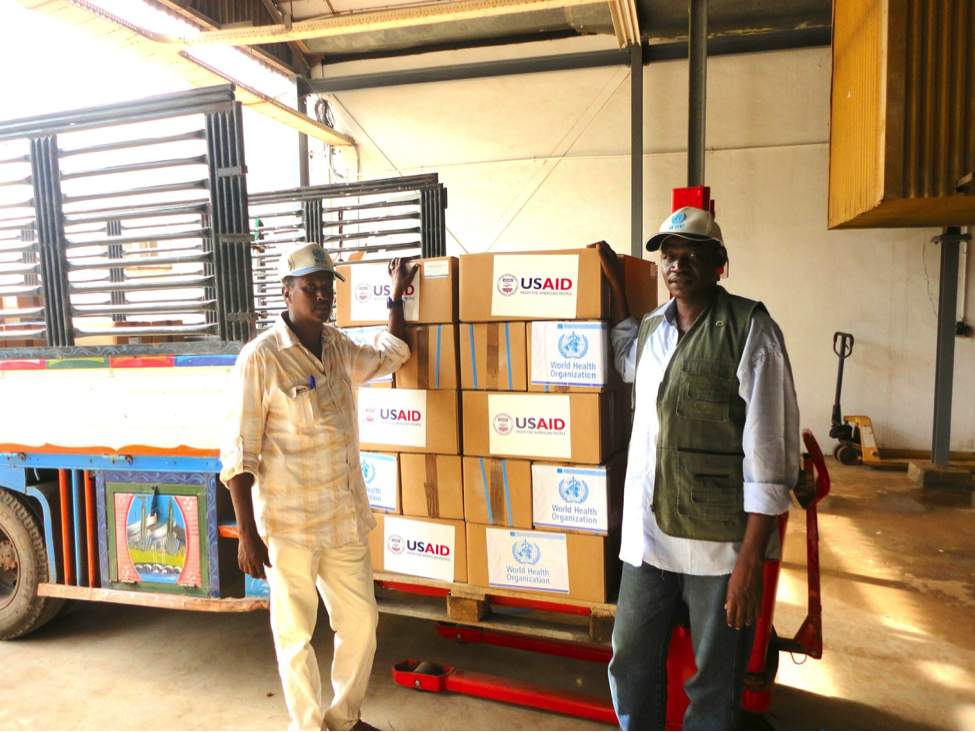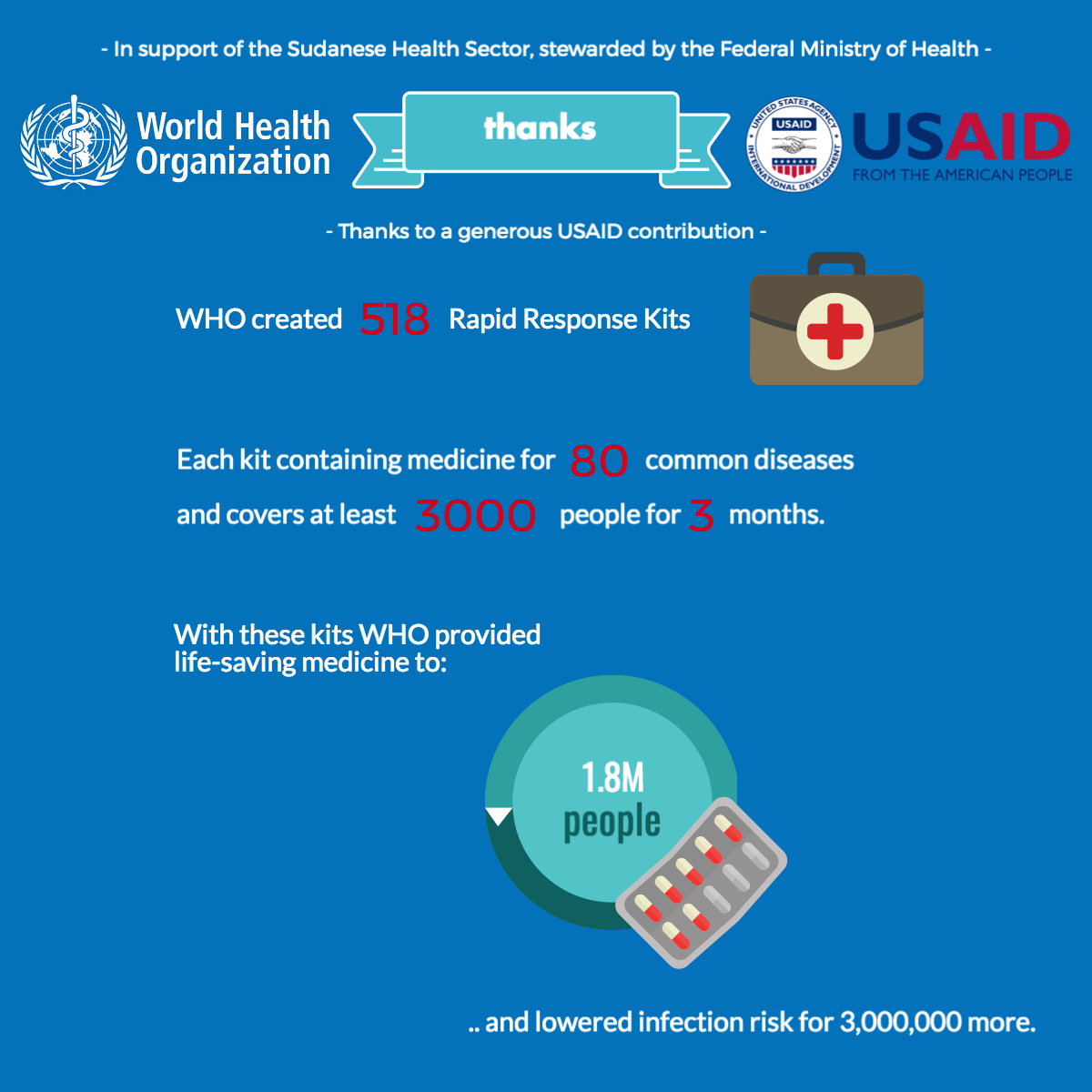 WHO staff loads Rapid Response Kits with medicine for 80 different common diseases onto a truck to be delivered to different locations across Darfur, Kordofan and Blue Nile (Photo: WHO Sudan).
WHO staff loads Rapid Response Kits with medicine for 80 different common diseases onto a truck to be delivered to different locations across Darfur, Kordofan and Blue Nile (Photo: WHO Sudan).
In early 2017, health systems across Sudan, and especially in Darfur, Blue Nile, and Kordofan, were struggling with an increasing burden, as no less than 3,4 million people were in need of better health services. Despite continued efforts and improvements by the Government of Sudan, WHO, and health partners, the existing health facilities were becoming overburdened. Shortages of life-saving medicine were spreading, as well as shortages of medical supplies, health staff, and the availability of quality health care all-round.
The Sudanese people who relied on the weakened health systems were increasingly suffering from deadly, but preventable diseases, such as acute watery and bloody diarrhoea, malaria, and respiratory infections. Their biggest need? Medicine. The lack of available and affordable medicine was not only causing more illness and death, it was forcing people to spend more money which then took away from other essential expenditure on food, water, and more. So, with the generous help of USAID, medical specialists of WHO Sudan put together a three step programme to fill this need for proper medicine.

First, staff conducted a quick assessment of which kinds of medicine were needed. Using past reports as well as constantly updated digital information from smart, decentralized reporting systems like the HeRAMS and EWARS, WHO staff was able to put together an emergency health kit including 80 different kinds of medicine. The list included treatment for diarrhoea, pneumonia, but also diabetes and high blood pressure. These so-called Rapid Response Kits contain 10 modules of essential medicines and cover at least 3000 people for 3 months.
Then, WHO needed to buy the actual pills, powders and injections, and get them to the right place. To make sure that medicines and pharmaceutical products meet the highest standards, WHO applies strict safeguards while also looking for the best price. By ensuring high standards and sharp prices, the generous contribution of USAID lasts far longer. In total, WHO distributed 518 kits and implemented medical consultations, covering 1,819,000 vulnerable people. The support of 8 international partners was crucial in achieving the result, including the American Refugee Committee, Care International Sudan, Save the Children Sweden, World Relief, GOAL IRELAND, Relief International, Catholic Relief Support, and the International Medical Corporation.
After distribution of the kits, WHO ensured that the right medicine was being prescribed for the right conditions. Spot checks and data from the smart systems in place, including a WHO supply tracking and stock management system, guaranteed this.
At the end of the project, thanks to the generous contribution of USAID and the smooth collaboration between WHO and its partners, nearly 2 million Sudanese people had received access to life-saving essential medicine. What's more, another 3 million people benefited indirectly from the project outcome: their risk of becoming ill because their friend or neighbor did not have a health system to turn to was now far lower.



